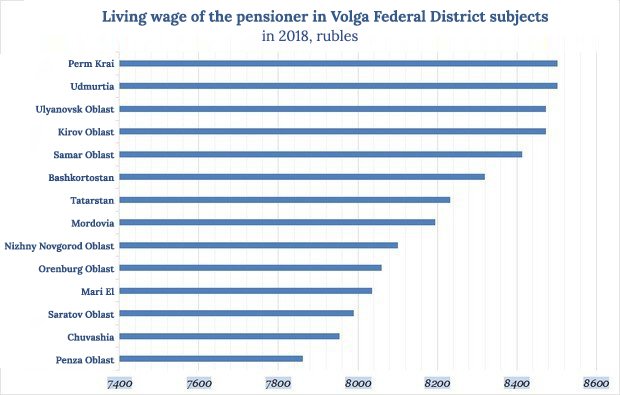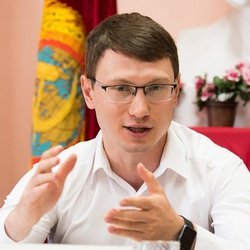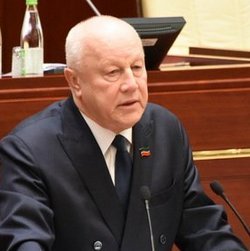No increment. Subsistence minimum for pensioners to be frozen in Tatarstan
Tatarstan authorities again decide to save on pensioners, choosing not to index the subsistence minimum rate for them. This means that next year tens of thousands of low-income Tatarstan citizens will never wait for an increase in social assistance, despite inflation acceleration. A year ago, officials claimed that the older generation could provide themselves with a minimum commodity bundle for even less money than they had. Read more in the material of Realnoe Vremya.
Like in 2017
This year, the vast majority of Russian regions have increased the subsistence minimum for non-working pensioners. It has been done by the authorities of 71 regions, as a result, in the whole country the rate of the pension subsistence minimum has increased by 2,2% and amounted to 8,726 rubles. Tatarstan is among the few regions that have not indexed the subsistence minimum: in September 2017, the State Council of the Republic of Tatarstan adopted the law on its preservation at the level of 8,232 rubles.
It will also be the same in 2019, judging by the draft law prepared by the ministry of economy of Tatarstan. In other words, the rate of the subsistence minimum of pensioners is proposed to leave the same as it was in 2017.
The subsistence level of consumption indicator is used in the calculation of federal and regional social supplementary benefits that the government gives to low-income non-working pensioners (they are compensated for the amount that is not enough to the subsistence minimum). The lower subsistence level is, the less assistance is.
Last year, 3,9 million pensioners received federal supplementary benefits in Russia, the state spent 96,8 billion rubles to provide the corresponding support. The average amount of additional payment was about 1,900 rubles. As of 1 August 2018, the average size of the federal additional benefit was 1,896 rubles, and the number of recipients exceeded 3,7 million people, the press service of the Pension Fund of Russia reported. More than 73,000 pensioners receive social supplementary benefits in Tatarstan.
The subsistence level of consumption in the region is low – both by Russian standards and by the Volga Federal District's. For example, in Perm Oblast, Udmurtia, Ulyanovsk Oblast, Kirov Oblast, Samara Oblast and Bashkortostan, the subsistence level of pensioners is higher. At the same time, in addition to Tatarstan, only two of the 14 subjects of the district (Udmurtia and Kirov Oblast) refused to index it last year.

Until recently, Tatarstan steadily increased the subsistence level, and sometimes the increase was generous and exceeded the inflation rate of the previous year. In 2015, the living wage of the pensioner in the region increased by 6,7%, in 2016 — by 19,3%, and in 2017 — by 9,4%.
The ministry of economy of the Republic of Tatarstan explained the refusal of indexation in 2018 by the fact that the actual price of the minimum commodity bundle of pensioners in the country is lower than the official level of the subsistence minimum. Allegedly, in 2016 the official subsistence level was by 24,5% higher than the real one, and in the first quarter of 2017 — almost 21%. We failed to find a confirmation to these calculations, the officials have not answered the questions of Realnoe Vremya yet.
''Nothing but indignation''
The second consecutive freezing of the subsistence minimum for pensioners occurs against the background of the upcoming price increase, which is reported by the Bank of Russia, the ministry of economic development and independent experts. In recent months, the inflation has accelerated and will continue to accelerate even more. In July, the Central Bank predicted that due to the increase in VAT the inflation by the end of this year will grow to 3,5-4%, and in 2019 will temporarily exceed 4%. The ministry of economic development also expects prices to rise, including due to the weakening of the ruble under the influence of new sanctions.
 ''This is outrageous. Nothing, except indignation, such information [about freezing of the subsistence minimum] cannot cause, I extremely negatively treat it,'' Deputy of the State Council Artem Prokofiev told. ''In general, I'll probably ask for information on these calculations — let them show us how they counted that the prices have not changed over all this time.''
''This is outrageous. Nothing, except indignation, such information [about freezing of the subsistence minimum] cannot cause, I extremely negatively treat it,'' Deputy of the State Council Artem Prokofiev told. ''In general, I'll probably ask for information on these calculations — let them show us how they counted that the prices have not changed over all this time.''
Prokofiev recalls that a few years ago the subsistence minimum in Tatarstan was the lowest among the subjects of the Volga Federal District (it was in 2013 — editor's note), it was sharply increased only after the ''big proceedings'' in the parliament: ''If it is not indexed, then, of course, we will again begin to concede to everyone.''
 Head of the State Council Committee on Economy, Investment and Entrepreneurship Marat Galeev believes that the increase in VAT should not necessarily harm pensioners — the impact on them can be neutral: ''VAT is increased not for everything, a number of goods remain at a reduced rate of 10%. And those goods that affect the subsistence minimum, as a rule, have a 10% VAT.''
Head of the State Council Committee on Economy, Investment and Entrepreneurship Marat Galeev believes that the increase in VAT should not necessarily harm pensioners — the impact on them can be neutral: ''VAT is increased not for everything, a number of goods remain at a reduced rate of 10%. And those goods that affect the subsistence minimum, as a rule, have a 10% VAT.''
We failed to talk to representatives of the profile committee on social policy — Head of the Committee Svetlana Zakharova was busy.
According to Rosstat, in June 2018 the fixed set of basic goods and services cost residents of Tatarstan 13,300 rubles. Last year, its cost increased by about 3%, and the price of the minimum food bundle — by about 1,5%.